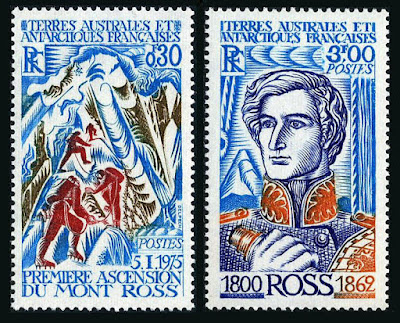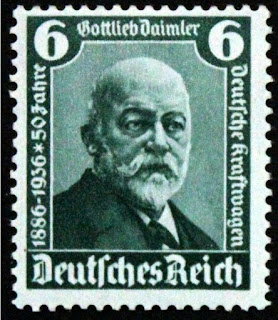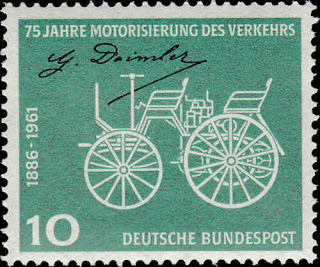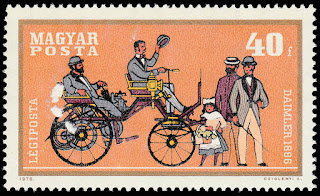1862 Died: James Clark Ross, English captain and explorer (b. 1800)
Sir James Clark Ross (15 April 1800 – 3 April 1862) was a British Royal Navy officer and polar explorer known for his explorations of the Arctic, participating in two expeditions led by his uncle Sir John Ross, and four led by Sir William Parry, and, in particular, for his own Antarctic expedition from 1839 to 1843.
Ross was born in London, the nephew of Sir John Ross, under whom he entered the Royal Navy in 1812, accompanying him on Sir John's first Arctic voyage in search of a Northwest Passage in 1818. Between 1819 and 1827, Ross took part in four Arctic expeditions under Sir William Parry, and in 1829 to 1833, again served under his uncle on Sir John's second Arctic voyage. It was during this trip that a small party led by James Ross (including Thomas Abernethy) located the position of the North Magnetic Pole on 1 June 1831, on the Boothia Peninsula in the far north of Canada. It was on this trip, too, that Ross charted the Beaufort Islands, later renamed Clarence Islands by his uncle.
Stamps from Great Britain and French Southern & Antarctic Territories depicting James Clark Ross
Franz Adolf Berwald (23 July 1796 – 3 April 1868) was a Swedish Romantic composer. He made his living as an orthopedist and later as the manager of a saw mill and glass factory, and became more appreciated as a composer after his death than he had been in his lifetime.
One of his few operas to be staged in his lifetime, Estrella de Soria, was heartily applauded at its premiere at the Royal Theater in April 1862, and was given four more performances in the same month. Following this success, he wrote Drottningen av Golconda (The Queen of Golconda), which would have been premiered in 1864, but was not, due to a change of directors at the Royal Opera.
In 1866, Berwald received the Swedish Order of the Polar Star, in recognition of his musical achievements. The following year, the Board of the Royal Musical Academy appointed Berwald professor of musical composition at the Stockholm Conservatory, only to have the Conservatory Board reverse the decision a few days later, and appoint another. The royal family stepped in, and Berwald got the post. At around that time he was also given many important commissions, but he did not live to fulfill them all.
Berwald died in Stockholm in 1868 of pneumonia and was interred there in the Norra begravningsplatsen (Northern Cemetery). The second movement of the Symphony No. 1 was played at his funeral.
Swedish stamps commemorating Franz Berwald
1885 – Gottlieb Daimler is granted a German patent for his engine design.
Gottlieb Wilhelm Daimler (17 March 1834 – 6 March 1900) was an engineer, industrial designer and industrialist born in Schorndorf (Kingdom of Württemberg, a federal state of the German Confederation), in what is now Germany. He was a pioneer of internal-combustion engines and automobile development. He invented the high-speed liquid petroleum-fuelled engine.
Daimler and his lifelong business partner Wilhelm Maybach were two inventors whose goal was to create small, high-speed engines to be mounted in any kind of locomotion device. In 1883 they designed a horizontal cylinder layout compressed charge liquid petroleum engine that fulfilled Daimler's desire for a high speed engine which could be throttled, making it useful in transportation applications. This engine was called Daimler's Dream.
In 1885 they designed a vertical cylinder version of this engine which they subsequently fitted to a two-wheeler, the first internal combustion motorcycle which was named the Petroleum Reitwagen (Riding Car) and, in the next year, to a coach, and a boat. Daimler called this engine the grandfather clock engine (Standuhr) because of its resemblance to a large pendulum clock.
In 1890, they converted their partnership into a stock company Daimler Motoren Gesellschaft (DMG, in English—Daimler Motors Corporation). They sold their first automobile in 1892. Daimler fell ill and took a break from the business. Upon his return he experienced difficulty with the other stockholders that led to his resignation in 1893. This was reversed in 1894. Maybach resigned at the same time, and also returned. In 1900 Daimler died and Wilhelm Maybach quit DMG in 1907.
German and Hungarian stamps depicting Gottlieb Daimler or his cars
1922 – Joseph Stalin becomes the first General Secretary of the Communist Party of the Soviet Union.
Born to a poor family in Gori in the Russian Empire (now Georgia), Stalin joined the Marxist Russian Social Democratic Labour Party as a youth. He edited the party's newspaper, Pravda, and raised funds for Vladimir Lenin's Bolshevik faction via robberies, kidnappings, and protection rackets. Repeatedly arrested, he underwent several internal exiles. After the Bolsheviks seized power during the 1917 October Revolution and created a one-party state under Lenin's newly renamed Communist Party, Stalin joined its governing Politburo. Serving in the Russian Civil War before overseeing the Soviet Union's establishment in 1922, Stalin assumed leadership over the country following Lenin's 1924 death. Under Stalin, "Socialism in One Country" became a central tenet of the party's dogma. Through the Five-Year Plans, the country underwent agricultural collectivisation and rapid industrialisation, creating a centralised command economy. This led to significant disruptions in food production that contributed to the famine of 1932–33. To eradicate accused "enemies of the working class", Stalin instituted the "Great Purge", in which over a million were imprisoned and at least 700,000 executed between 1934 and 1939. By 1937, he had complete personal control over the party and state.
Stalin's government promoted Marxism–Leninism abroad through the Communist International and supported European anti-fascist movements during the 1930s, particularly in the Spanish Civil War. In 1939, it signed a non-aggression pact with Nazi Germany, resulting in the Soviet invasion of Poland. Germany ended the pact by invading the Soviet Union in 1941. Despite initial setbacks, the Soviet Red Army repelled the German incursion and captured Berlin in 1945, ending World War II in Europe. The Soviets annexed the Baltic states and helped establish Soviet-aligned governments throughout Central and Eastern Europe, China, and North Korea. The Soviet Union and the United States emerged from the war as global superpowers. Tensions arose between the Soviet-backed Eastern Bloc and U.S.-backed Western Bloc which became known as the Cold War. Stalin led his country through the post-war reconstruction, during which it developed a nuclear weapon in 1949. In these years, the country experienced another major famine and an anti-semitic campaign peaking in the doctors' plot. After Stalin's death in 1953 he was eventually succeeded by Nikita Khrushchev, who denounced his predecessor and initiated the de-Stalinisation of Soviet society.
Widely considered one of the 20th century's most significant figures, Stalin was the subject of a pervasive personality cult within the international Marxist–Leninist movement which revered him as a champion of the working class and socialism. Since the dissolution of the Soviet Union in 1991, Stalin has retained popularity in Russia and Georgia as a victorious wartime leader who established the Soviet Union as a major world power. Conversely, his totalitarian government has been widely condemned for overseeing mass repressions, ethnic cleansing, deportations, hundreds of thousands of executions, and famines which killed millions.
Stamps from Russia and China depicting Stalin










No comments:
Post a Comment